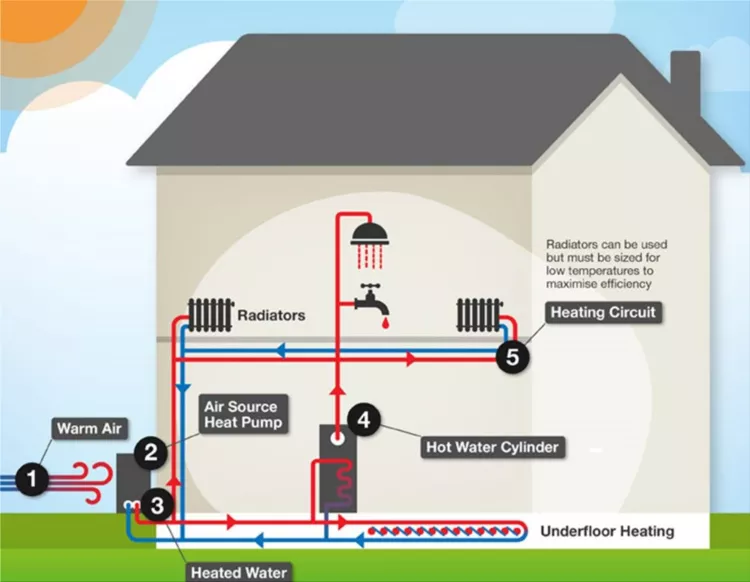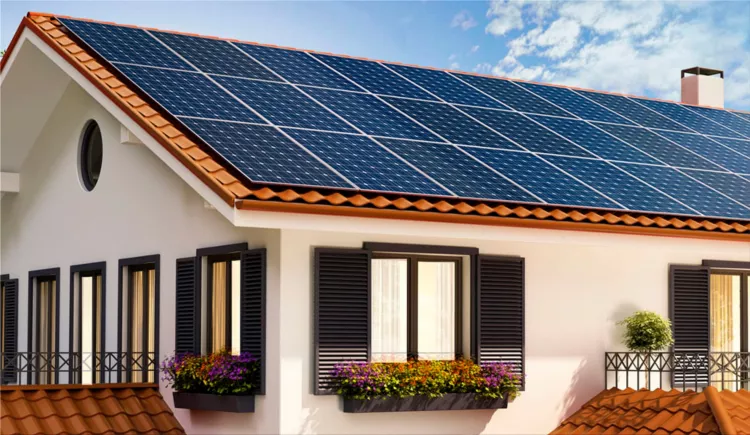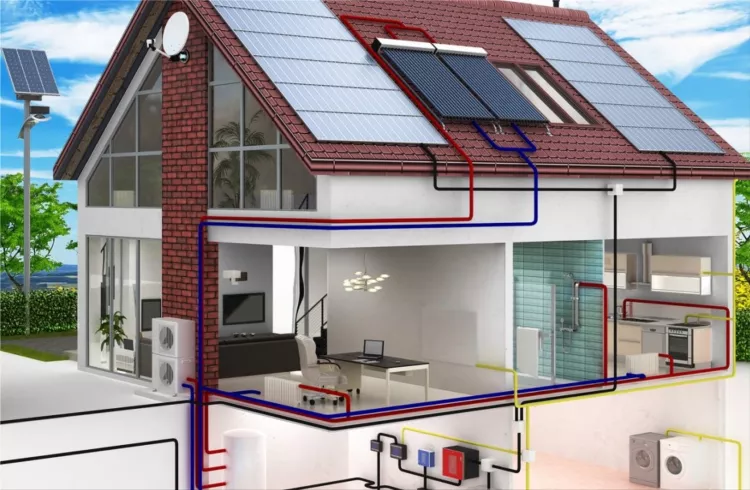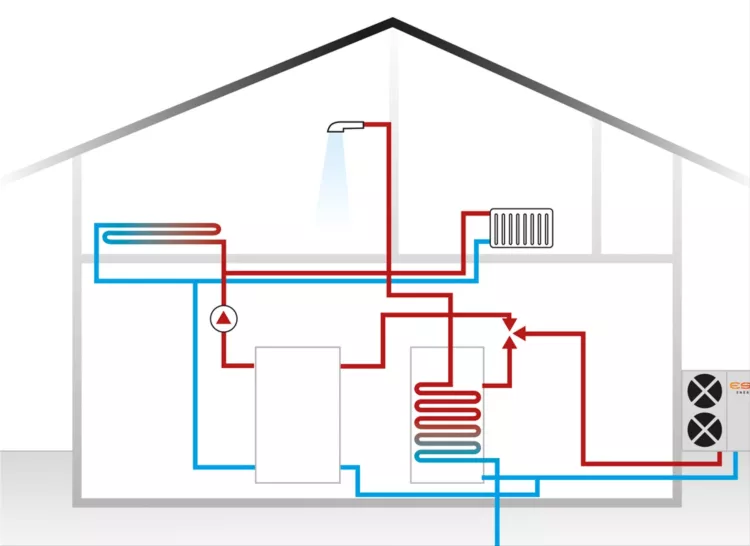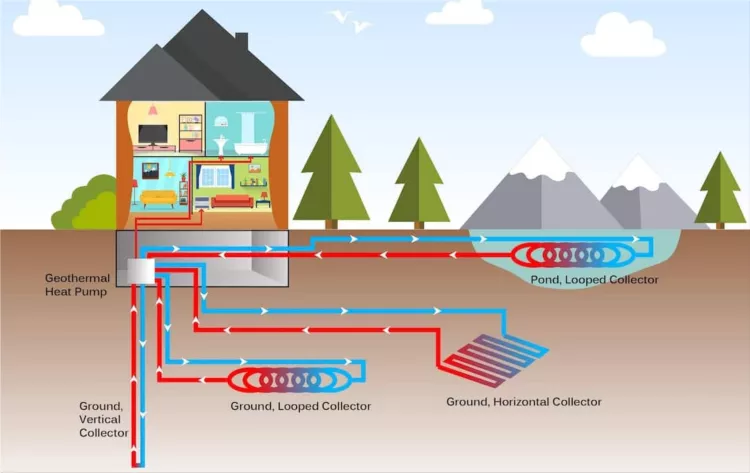Heat pumps have recently become the industry standard for heating new houses
In light of the ever-increasing cost of oil and gas, many homeowners are considering switching to a heat pump. Because heat pumps use less electricity overall than a typical home, the providers offer discounts. If the power goes out in the winter, we explain the tariffs and what to expect.
The government has mandated that renewable sources heat all new construction by 2025. Heat pumps are technically necessary for this purpose. Nonetheless, they are wholly powered by electricity. Your energy provider determines the heat pump's ongoing maintenance and operational costs. Therefore, the electricity used to run such a heater requires careful planning.
Electricity bills can be reduced.
Heating electricity at a reduced rate from the rate charged for regular household use is not a novel concept. It originated in the 1960s when night storage heaters became commonplace in urban dwellings. At night, when electricity demand was low, and rates were low, they would fill their heat storage tanks and then release the heat during the day. As a result, the cost per kilowatt-hour went down because electricity providers gave preferential rates.
Heat pumps can now be run on the same affordable electricity rates used for traditional heating systems. The extent to which you save will vary by location and service provider. However, you can expect an average savings of 20% on your electricity bill compared to the standard tariff. That's equivalent to 7.3% of the current average price of electricity per kilowatt-hour (KWh), which is 36.19 cents. The annual electricity use of a household heat pump is roughly 4500 kWh. Therefore, you can save about 330 euros annually by switching to an electric heating tariff.
Can I switch service providers at any time?
No. Regarding heating electricity contracts, you can choose from any provider because the market has been liberalized. The electricity used by your heat pump and the rest of your home can come from different companies. Dual electricity meters, one for each rate, are installed and billed separately. Then, at the end of the year, you'll get two separate bills.
Greater autonomy thanks to solar power.
It's possible that a heating electricity tariff would be even less expensive than regular residential electricity. If you install a photovoltaic system (PV) on your roof, you can generate your electricity and avoid paying an electric company to supply it. All of the power from the PV system can be routed to the heat pump, or you can choose to use only surplus power. With optimal conditions and smart control, a PV system can provide as much as half of the power needed by the heat pump.
Energy storage can help you save money.
However, the cost-cutting opportunities do not end there. Investing in electricity storage allows for further reductions in operational expenses. However, there is a need to compensate for the expense of acquiring such a memory. If you don't have a heating electricity tariff, you can still use the heat pump during the day by feeding electricity into the storage tank at the lower night tariff. Extra power generated by your PV system can be stored in this building until it is needed. Many experts believe that you can run your heat pump on 70% of the power generated by your PV array.
What happens if there is a power outage, particularly in the winter?
Because heat pumps are electrically powered, it stands to reason that if the power goes out, you will experience severe cold in your home. However, heat pumps are not the only thing at risk. Heating systems that use oil, gas, pellets, or anything else can not function without electricity. In the end, ignition sparks, pumps, and sophisticated controls are all necessities for these forms of heating, and they all require electricity. Cutting wood for a fireplace is an energy-efficient and environmentally friendly way to heat your home without needing electricity.
An interruption in electricity service, however, need not spell disaster. For instance, with a PV-charged electricity storage device, you can ensure that you have some heat if your primary energy source suddenly fails. And even then, it takes a while to get cold. To put it another way, radiators (especially underfloor heating) store heat and release it slowly into the room.
In my heating and electricity contract, what does the EVU block represent?
Heat pumps can be operated 20% more cheaply with a heating electricity tariff than regular household electricity, but do you remember what we said at the outset? This concept had existed since the 1960s when it was theorized that the power grid would experience fewer peak loads at night when night storage heaters were using electricity. On the other hand, a heat pump is used throughout the day, not just at night.
It's possible, then, that you'll want to access the cheap heating electricity just as every other home in the neighborhood needs the more expensive household electricity for everything from cooking to watching television. Because of the potential for this to cause power outages, energy companies can legally cut off your heat pump from the grid.
The EVU lock, a standard feature of electricity heating contracts, is the foundation for this intervention. It establishes periods when your heat pump can be unplugged from the electrical grid. Most of these occur during the morning, afternoon, and evening rush hours. Whether or not your heat pump is impeded depends on the peak load. A supplier can theoretically use the lock thrice daily for six hours. After each restart, however, the heat pump must be given free operation for at least as long as it was impeded.
- Add new comment
- 100 views





